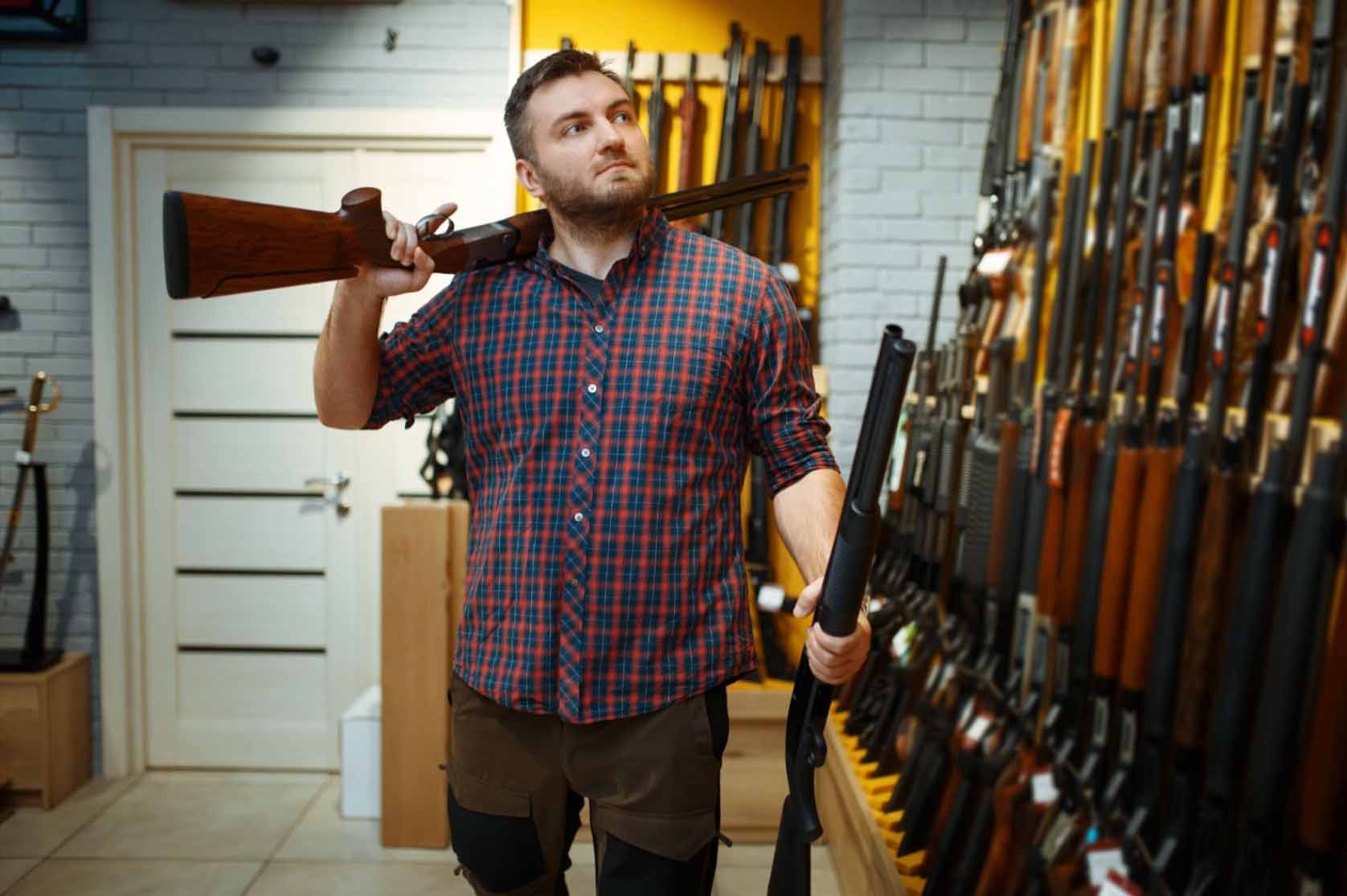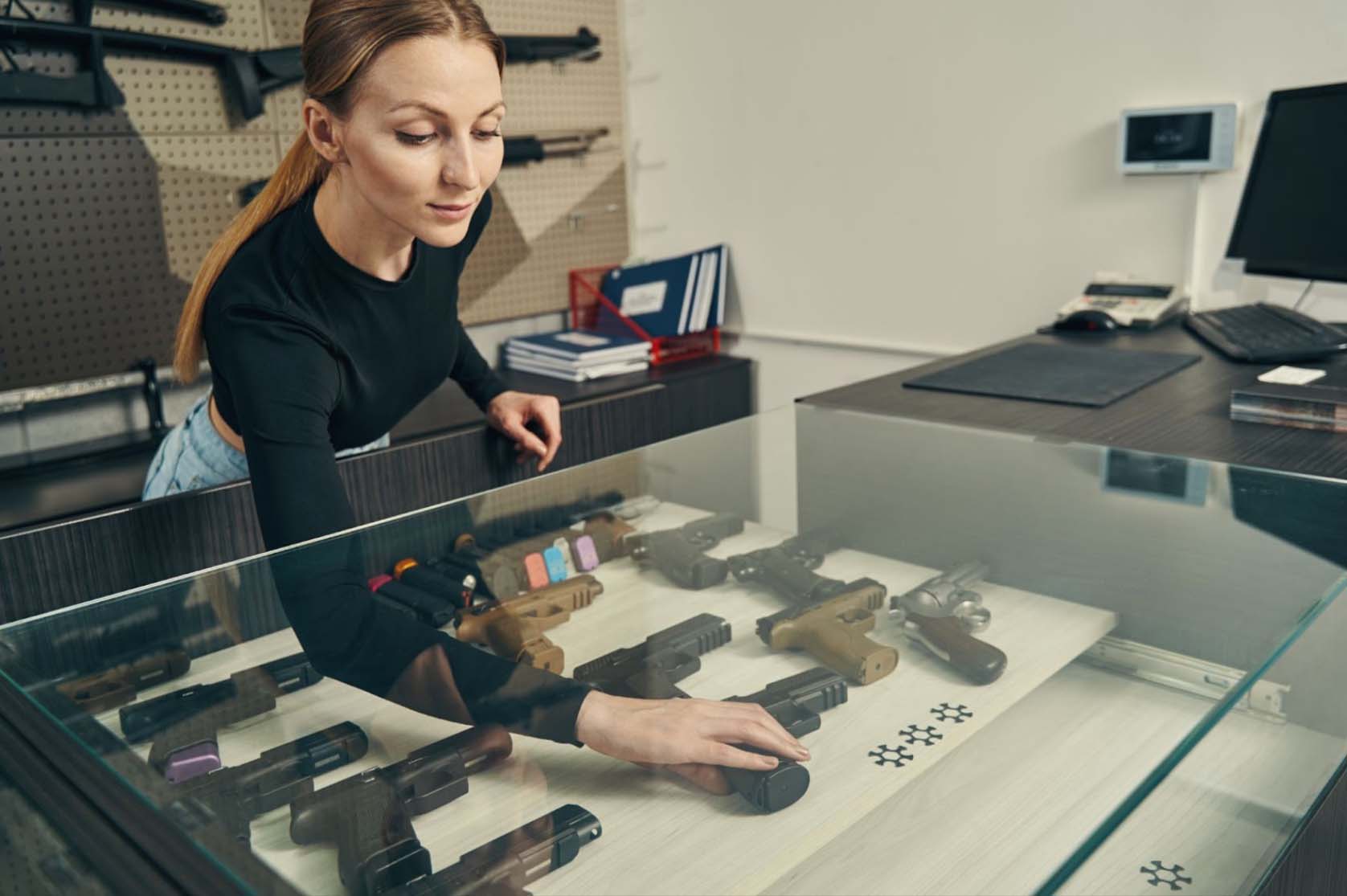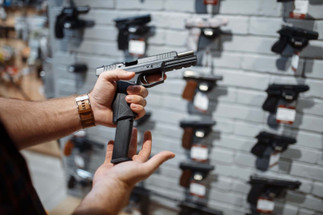Jun 7th 2024
How to Get a Licensed Gun
How to Get a Licensed Gun
Securing a licensed gun involves a multi-step process to ensure safety and legality. Each jurisdiction has specific requirements, but the overarching goal is to vet potential owners thoroughly. Here's how you can navigate the path to legally owning a firearm.
Basic Steps to Getting a Licensed Gun
These steps will guide you through the legal pathway to owning a firearm responsibly.
Step 1: Understand Local and Federal Regulations
Begin by thoroughly reviewing your local and federal firearm laws. This step is crucial to understanding the specific requirements, including age restrictions, the necessity of background checks, and mandatory firearms safety courses. Remember, laws vary widely from one jurisdiction to another.
Step 2: Meet Preliminary Requirements
Before applying for a gun license, ensure you meet the essential criteria:
Age
Verify that you meet the minimum age requirement, typically 18 for rifles and shotguns and 21 for handguns.
Background Check
Prepare for a comprehensive background check that will identify any criminal history, domestic violence incidents, or mental health concerns that could disqualify you.
Firearms Training
Most places require a firearms safety course, which focuses on responsible gun handling, storage, and usage and the legal aspects of gun ownership.
Step 3: Application Submission
Gather and submit the necessary application materials, which generally include:
Valid Identification
Government-issued identification or proof of residency.
Background Check Proof
Documentation confirming a passed background check.
Training Certification
If mandated, evidence of completing a firearms safety course.
Ownership Justification
Some jurisdictions might request a rationale for owning a firearm, such as for hunting, sport, or self-defense.
Submit these documents and any applicable fees to the appropriate regulatory body, which could include local police departments or national agencies.
Step 4: Wait for Approval
Post-application, be prepared for a waiting period allowing additional vetting, possibly including interviews or fingerprinting. This phase requires patience, as processing times can vary greatly.
Step 5: Receiving and Maintaining Your License
You'll receive your gun license upon approval, officially becoming a lawful firearm holder. It's essential to stay informed about and comply with all relevant gun ownership, storage, and transport laws. Keep track of your license's expiration and understand the renewal process, which may involve further background checks or additional training.

Gun Ownership in the U.S.: Understanding Federal and State Regulations
As we navigate the intricacies of obtaining a firearms license, we must step back and appreciate the broader context of gun ownership in the United States. Understanding the federal and state regulations illuminates the legal landscape. It frames the significance of each step in the licensing process, ensuring prospective gun owners are well-informed and compliant with the law at every level.
Federal Requirements Overview
The journey to legally own a gun in the United States begins at the federal level, with the Bureau of Alcohol, Tobacco, Firearms and Explosives (ATF) setting the baseline. Here, the focus is on ensuring that individuals meet the universal criteria to promote safety and prevent firearms from falling into the wrong hands.
Background Checks
The background check is Central to the federal requirements and is conducted through the National Instant Criminal Background Check System (NICS). This swift process verifies if a prospective buyer has a criminal record, specific mental health issues, or any other factor that would disqualify them from owning a firearm. Understanding what might be flagged in a background check can help applicants prepare or address potential issues beforehand.
Age Restrictions and Prohibited Persons
The age restriction is straightforward—18 for rifles and shotguns and 21 for handguns. However, the list of prohibited persons encompasses not just felons but also includes those adjudicated as mentally defective, dishonorably discharged from the Armed Forces, or who have renounced their U.S. citizenship, among others. Knowing these categories is crucial for understanding eligibility.
State-Level Nuances
While federal laws provide a foundation, state laws introduce a tapestry of requirements that reflect local values and safety concerns.
Permits and Registration
States like California and New York have stringent processes, including purchase permits and firearm registration. These steps often involve additional paperwork and, sometimes, fees. Understanding your state's specific requirements is essential for a smooth application process.
Safety Courses
Mandatory safety courses are a common requirement for those seeking to own a gun or obtain a concealed carry permit. These courses cover essential topics like safe handling, storage, and laws relating to the use of firearms. Some states have specific course requirements, so prospective owners should research to find accredited programs.
Concealed Carry Permits
One of the most variable aspects across states is the issuance of concealed carry permits. "Shall issue" states require the permit to be issued if the applicant meets all criteria, while "may issue" states add a layer of discretion, sometimes requiring the applicant to demonstrate a need for carrying a concealed weapon. Navigating these differences is vital for residents wishing to have their firearms concealed.
Additional Considerations for Prospective Gun Owners
Before embarking on your journey to gun ownership, consider these additional factors that play a crucial role in the process.
Private Sales and Shows
The so-called "gun show loophole" refers to the exemption from background checks for private sales, including those happening at gun shows. However, this characterization oversimplifies the issue, as many states have taken steps to close this loophole by requiring background checks for all sales, including private transactions.
Open Carry Laws
State laws diverge significantly regarding the ability to carry a firearm openly. Some states allow open carry without permits, while others have stringent requirements or outright bans. Understanding your state's stance on open carry is essential for those who wish to exercise this option.
Acquiring a licensed gun in the United States is a multifaceted process requiring careful attention to federal and state laws. By understanding and preparing for these requirements, prospective gun owners can navigate the process more smoothly, ensuring they meet all legal obligations and contribute to safe and responsible firearms ownership.

Why Are Background Checks Necessary?
Background checks are a crucial component of the process for acquiring a gun in the United States, serving multiple essential functions aimed at promoting public safety and preventing firearms from being obtained by individuals who may pose a risk to themselves or others. The necessity of background checks can be understood by examining their essential purposes and benefits:
Enhancing Public Safety
One of the primary reasons for conducting background checks is to enhance public safety by ensuring that firearms do not end up in the hands of individuals who have a history that suggests they could use them irresponsibly or maliciously. It includes preventing access to guns by those with a criminal record, particularly those convicted of violent crimes or domestic violence, who are at a higher risk of committing future offenses.
Preventing Illegal Ownership
Background checks help enforce existing laws regarding who can purchase and own firearms. Federal regulations, for example, prohibit the sale of firearms to felons, fugitives, drug addicts, individuals adjudicated as mentally defective, and those under restraining orders for domestic violence. By screening for these disqualifications, background checks prevent individuals prohibited by law from owning firearms and making legal purchases.
Reducing Gun Violence and Crime
Studies and statistics have shown that areas with stringent background check policies tend to have lower rates of gun violence and crime. By restricting access to guns among those most likely to use them for criminal purposes, background checks contribute to overall reductions in gun-related homicides, suicides, and accidental shootings.
Suicide Prevention
Background checks can play a role in suicide prevention by limiting access to firearms for individuals with specific mental health issues that have been legally adjudicated. Given that firearms are one of the most lethal means of attempting suicide, reducing access for those at risk can save lives.
Supporting Responsible Gun Ownership
Background checks support the principle of responsible gun ownership by ensuring that individuals meet specific criteria before purchasing a gun. This process reassures the public and the gun-owning community that individuals who possess firearms have been vetted and deemed eligible under the law.
Aiding Law Enforcement
Background checks are valuable tools for law enforcement. They provide a mechanism to prevent the legal purchase of firearms by individuals involved in criminal activities. It can aid in crime prevention and enforcement efforts, making it more difficult for criminals to obtain firearms legally.
Building Public Confidence
Implementing thorough background checks helps build public confidence in the gun sales and ownership system. Knowing that safeguards prevent dangerous individuals from obtaining firearms legally can reassure the public about the overall safety and integrity of the process.
Background checks are necessary as they play a critical role in enhancing public safety, enforcing laws regarding gun ownership, reducing rates of gun violence and crime, preventing suicides, supporting responsible ownership, assisting law enforcement, and building public confidence. They are a fundamental part of the framework designed to ensure that the right to own firearms is balanced with the necessity of preventing misuse.
Learn More About Purchasing a Licensed Gun
Learn more about purchasing a licensed gun to understand the legal requirements and ensure responsible ownership. Familiarize yourself with the necessary background checks, permits, and safety courses required by your state. This knowledge will help you make an informed decision and promote a safer community for all.
Ready to take the next step toward responsible gun ownership? Visit Gunline Shooting blog today to explore our training courses.

